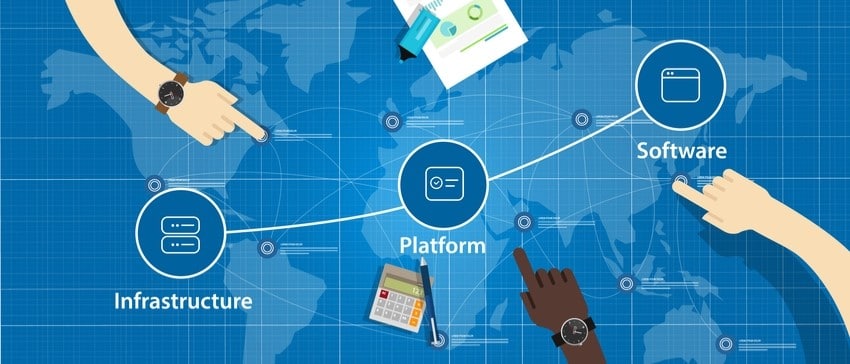Estimated reading time: 5 minutes
• Accounts payable automation is the installing of technology to electronically receive, check, audit, and pay suppliers.
• It leads to faster handling of invoices, which can easily pile up when handled manually.
• There are several other reasons to consider automation of payables, including accuracy, lower costs, and better relationships with suppliers due to prompt payments.
The Automation Process
The payable automation solution picked by your company must be able to do three functions. First, the solution must be able to receive invoices electronically. This includes being able to extract information from scanned documents using technology, such as Optical Character Recognition. If the company has a supplier portal, suppliers should be able to auto-generate their invoices based on orders they receive and execute. Once the information is received, it should be backed in the cloud.
The second important function of an automation solution is matching invoices received to purchase orders and goods receipts. Manual invoice matching is a tiresome process of trying to ensure that details captured in the invoice are actually what was ordered and delivered. It’s a mandatory process to prevent fraud in an organization. Automation saves the company labor costs while increasing speed and accuracy.
Third, the automation solution should ensure secure archiving of all transactions related to accounts payable so that an audit process can be carried out easily whenever necessary. The transactions include orders and payments made to suppliers. Some automation solutions are linked with the banking details of suppliers so that approved invoices are automatically scheduled for payments. Archiving of payment details enables easy retrieval whenever necessary.
Getting Buy-In from Stakeholders
Any leader who seeks to implement an automation solution within their business must receive buy-in from the affected stakeholders for smooth implementation. First, employees should be able to understand how to invoice automation will increase their productivity. Instead of spending hours on manual and repetitive tasks, there should be the promise of more impactful work. Directors and shareholders would be on board with an automation solution that is likely to reduce the amount of revenue the company loses from fraud to human error in invoice handling.
Picking the Right Payables Automation Software
With numerous vendors in the market, you might be confused about the right payables management software for your business. The best place to begin is fully to understand your needs. For instance, how many suppliers are you dealing with and how often do they invoice you? A company that handles tens or hundreds of invoices in a day needs robust software with enough backup space for archiving. In addition, you need to know what additional functions your software ought to have beyond receiving and matching. An organization handling numerous transactions may need to integrate with other functions such as payment solutions for easier payment of suppliers.
It’s important to be clear about the amount of capital you are willing to invest in the payable automation solution. The expected return on investment should dictate the initial amount you wish to commit. The return on investment is both financial and non-financial. Financial ROI includes savings from reduced average invoice handling costs, eliminated human error losses, and reduction in average invoice processing time. The non-financial ROI factors include increased visibility into the invoice handling process, better supplier relationships, better audit trails, and improved employee satisfaction.
When attempting to settle on a solution, you should also check the trends in your industry to get an understanding of what other factors are important in your sector. Certain integrations may be of particular importance in your sector.
Benefits of Payables Automation
There are numerous benefits that accrue to businesses that choose to automate their payables and do it correctly.
First, the increased visibility into the accounts payable process will help improve cash management in the business. The business can see the average credit period it receives from creditors and compare it with the period it extends to buyers. If the receivables period is too long compared to the credit period from suppliers, there is likely to be a cash crunch. In such a situation, it would be best to reduce the time allowed for receivables.
Automation of payables is also likely to improve the level of collaboration within a company. As indicated, part of automation is the real-time matching of invoices to purchase orders and delivery notes. When a discrepancy is noted, the invoice gets flagged and routed to the correct party for investigation. The software provides a platform for concerned parties to deliberate on such issues and create a record of how they were resolved. This is crucial for any audit activities necessary in the future.
While evaluating the return on investment of payable automation, it’s important to weigh the reduction in accounting risk. There is little chance of false billing because the invoice matching process is no longer done by humans. It’s possible to flag invoices from unapproved vendors as well as any duplication of invoices.
Importantly, it’s possible to pull reports on invoices paid based on time periods or a particular supplier. Automation allows you the opportunity to use analytics to get a deeper understanding of your payables. With enough data, you can identify trends and patterns that can help optimize your payables workflow. You can compare your payables data with that of peers and the industry in general.
If your company is searching for a payable automation solution, ProcurePort can help you identify and customize a solution. ProcurePort is the world’s leading supplier of e-procurement solutions for both big and small size businesses.










